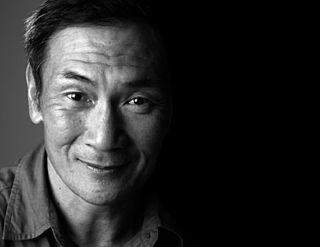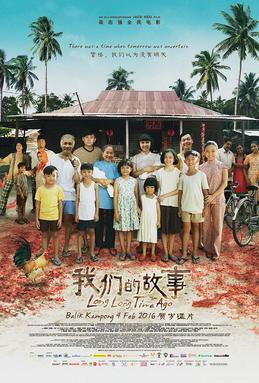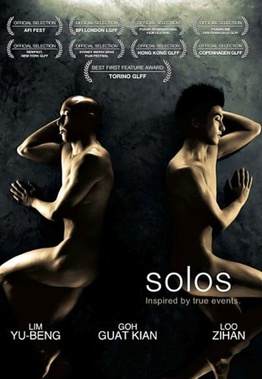Related Research Articles

Lee Kuan Yew, often referred to by his initials LKY, was a Singaporean statesman and lawyer who served as the first Prime Minister of Singapore from 1959 to 1990, and Secretary-General of the People's Action Party from 1954 to 1992. He was the Member of Parliament (MP) for Tanjong Pagar from 1955 until his death in 2015. Lee is widely recognised as the founding father of the modern Singaporean state, and for his leadership in turning and transforming it into a highly developed country during his tenure.

The Cabinet of Singapore forms the executive branch of the Government of Singapore together with the President. It is led by the Prime Minister who is the head of government. The prime minister is a Member of Parliament (MP) appointed by the president who in the president's judgment is likely to command the confidence of the majority of the Members of Parliament (MPs). The other Ministers in the Cabinet are Members of Parliament appointed by the president acting in accordance with the advice of the prime minister. Ministers are prohibited from holding any office of profit and from actively engaging in any commercial enterprise.
LGBT art in Singapore, or queer art in Singapore, broadly refers to modern and contemporary visual art practices that draw on lesbian, gay, bisexual, and transgender+ imagery and themes, addressing topics such as LGBT rights, history and culture in Singapore. Such queer art practices are often by Singaporean or Singapore-based visual artists and curators who identify as LGBT+ or queer.
The literature of Singapore comprises a collection of literary works by Singaporeans. It is written chiefly in the country's four official languages: English, Malay, Standard Mandarin and Tamil.
Censorship in Singapore mainly targets political, racial, religious issues and homosexual content as defined by out-of-bounds markers.

Capital punishment in Singapore is a legal penalty. Executions in Singapore are carried out by long drop hanging, and usually take place at dawn. Thirty-three offences—including murder, drug trafficking, terrorism, use of firearms and kidnapping—warrant the death penalty under Singapore law.

The National Arts Council (NAC) is a statutory board established on 15 October 1991 to oversee the development of arts in Singapore. It is under the purview of the Ministry of Culture, Community and Youth. The NAC provides grants, scholarships, awards and platforms for arts practitioners, as well as arts education and programmes for the general public.
Dance in Singapore has been an integral part of its culture despite having a relatively short history of creative, artistic and professional dance. The range of dance reflects the cultural diversity of Singapore, from traditional dance forms to contemporary genres.

The Artists Village (TAV) is a Singapore-based contemporary art group. TAV began as Singapore's first art colony, founded by contemporary artist Tang Da Wu in 1988. Apart from Tang, prolific performance artists such as Amanda Heng and Lee Wen were also closely associated with TAV.
Tang Da Wu is a Singaporean artist who works in a variety of media, including drawing, painting, sculpture, installation art and performance art. Educated at Birmingham Polytechnic and Goldsmiths' College, University of London, Tang gave his first solo exhibition, consisting of drawings and paintings, in 1970 at the Singapore Chinese Chamber of Commerce and Industry. He began engaging in performance art upon returning to Singapore in 1979 following his undergraduate studies.
Loo Zihan is a Singaporean actor, film director, artist and dancer. He was a part-time teacher at School of the Arts, Singapore, National Institute of Education (Singapore) and Nanyang Technological University.

The Singapore Short Film Awards (SSFA) is an annual event which promotes and recognises excellence in short films in Singapore. It began in 2010 and was jointly organised by The Substation and Objectifs, presented by The Substation's Moving Images. Created by filmmaker Chai Yee Wei, former Programme Manager of The Substation's Moving Images Low Beng Kheng and current Co-Founder of Objectifs Yuni Hadi, the Singapore Short Film Awards highlights quality work done annually in the short film genre in Singapore - by seeking out new talent, reflecting current standards of the short film genre and to bring together both the veterans and the young talents as a community to create a space for networking and sharing.
Amanda Heng Liang Ngim is a contemporary artist, curator and speaker from Singapore, who works in Singapore and internationally. As an artist she has a multidisciplinary practice, working collaboratively in contemporary art exhibitions, performance, forums, workshops and art interventions. Her practice explores themes of national identity, collective memory and social relationships, gender politics and other social issues in urban, contemporary Singaporean society. She is the recipient of the 2019 Singapore Biennale's Benesse Prize.

Lim Kay Tong is a Singaporean film, television and stage actor. Notably, he starred opposite Sean Penn in Shanghai Surprise (1986), Pierce Brosnan in Noble House (1988), and Claire Danes in Brokedown Palace (1999), and was the lead actor in Growing Up (1996–2001) and Perth (2004). Lim has been called "Singapore's finest actor", "Singapore's best-known actor", and Singapore's answer to thespians Ian McKellen and Alec Guinness.

Long Long Time Ago is a 2016 Singaporean period film directed by Jack Neo. The film commemorates Singapore's 50th birthday and stars Aileen Tan, Mark Lee and Wang Lei as the main casts. It is released on 4 February 2016 in Singapore. It also marks the second on-screen reunion of Mark Lee and Suhaimi Yusof after they starred alongside together in the popular Singaporean sitcom named Police & Thief.

Long Long Time Ago 2 is a 2016 Singaporean period film directed by Jack Neo. The film commemorates Singapore's 50th birthday and stars Aileen Tan, Mark Lee and Wang Lei as the main casts. The film was released on 31 March 2016. It also marks the third on-screen reunion of Mark Lee and Suhaimi Yusof after they starred alongside together in the popular Singaporean sitcom named Police & Thief.

Solos is a 2007 Singaporean drama film directed by Kan Lume and Loo Zihan, written by Loo, and starring Lim Yu-Beng, Loo, and Goh Guat Kian. It is based on a short film by Kan and Loo. The film features no dialogue and recounts the relationships between a boy (Loo), his mother (Goh), and his older lover (Lim). It premiered at the Busan International Film Festival after being pulled from the Singapore International Film Festival when the Singaporean government demanded cuts.

The 5th Passage Artists Limited, commonly known as 5th Passage or 5th Passage Artists, was an artist-run initiative and contemporary art space in Singapore from 1991 to 1994. As a registered, artist-led non-profit organisation, it was one of the earliest of its kind for early-1990s Singapore, with its initial space located at Parkway Parade, a shopping centre in the east of the city. The "meteoric existence" of 5th Passage has been noted alongside other art collectives and alternative spaces existing in 1990s Singapore, such as The Artists Village, The Substation, Plastique Kinetic Worms, and Trimurti.
References
Citations
- 1 2 Turnbull 1997, p. 236.
- 1 2 3 Lee 2016.
- ↑ Goh 2023, pp. 43–44.
- 1 2 3 4 5 6 7 8 9 Goh 2023, p. 44.
- 1 2 Lim 1994, p. 14.
- ↑ Martin 2008, p. 28.
- ↑ Say, Jeffrey (2023). Histories, Practices, Interventions: A Reader in Singapore Contemporary Art. World Scientific. pp. 180–183. ISBN 978-9811269141.
{{cite book}}: CS1 maint: date and year (link) - ↑ Goh 2023, p. 48.
- 1 2 Goh 2023, p. 36.
- ↑ Lagenbach 2016, p. 183.
- 1 2 3 4 Turnbull 1997, p. 237.
- 1 2 Taylor 2016, p. 734.
- ↑ Goh 2023, p. 49.
- 1 2 Lim 2009, p. 253.
- 1 2 Lim 1994, p. 12.
- ↑ Magro 2001, p. 192.
- ↑ Koh 2015, p. 11.
- 1 2 Chia 2012, p. C12.
- ↑ Davis & Lee 2000, p. 513.
- ↑ Davis & Lee 2000, p. 515.
Works cited
- Chia, Adeline (21 February 2012). "Cane bound by red tape". The Straits Times . p. C12.
- Davis, Lucy; Lee, Weng Choy (2000). "Play in the house of order: The Necessary Stage's BrainStorm". Inter-Asia Cultural Studies. 1 (3): 513–517. doi:10.1080/14649370020010003. S2CID 144474107.
- Goh, Wei Hao (2023). "Performing Protest in Singapore: Performance Tactics in Brother Cane and Don't Give Money to the Arts". Konsthistorisk tidskrift . 92 (1): 36–55. doi: 10.1080/00233609.2023.2181864 .
- Koh, Tommy (2015). "The Development of the Cultural Ecosystem in Singapore, 1991–2011: A Personal Journey". In Renee Foong Ling Lee (ed.). Art Hats In Renaissance City: Reflections & Aspirations Of Four Generations Of Art Personalities. World Scientific. pp. 9–18. ISBN 9789814630795.
- Lagenbach, Ray (2016). "Looking Back at Brother Cane: Performance Art and State Performance (1996)". In Jeffrey Say; Seng Yu Jin (eds.). Histories, Practices, Interventions: A Reader in Singapore Contemporary Art. World Scientific. pp. 178–196. ISBN 9789811268649.
- Lee, Jian Xuan (19 January 2016). "Curator Josef Ng, whose 1994 performance led to proscription of performance art, joins Pearl Lam Galleries". The Straits Times .
- Lim, Ovidia (5 January 1994). "Is This Art?". The New Paper . pp. 12, 14.
- Lim, Peter H. L. (2009). Chronicle of Singapore, 1959–2009: Fifty Years of Headline News. Editions Didier Millet. ISBN 9789814217750.
- Magro, Aiden (2001). "Exposing the State: Loo Zihan's Queer Performance". Southeast of Now: Directions in Contemporary and Modern Art in Asia. 5 (1/2): 175–203. doi: 10.1353/sen.2021.0007 .
- Martin, Mayo (19 August 2008). "Village people: Their legacy lives on". Today . p. 28.
- Taylor, Nora A. (2016). "Have Performance, Will Travel: Contemporary Artistic Networks in Southeast Asia". Asian Journal of Social Science. 44 (6): 725–739. doi:10.1163/15685314-04406006.
- Turnbull, David (1997). "Soc. Culture; Singapore". In Nan Ellin (ed.). Architecture of Fear. Princeton Architectural Press. pp. 227–240. ISBN 9781568980829.